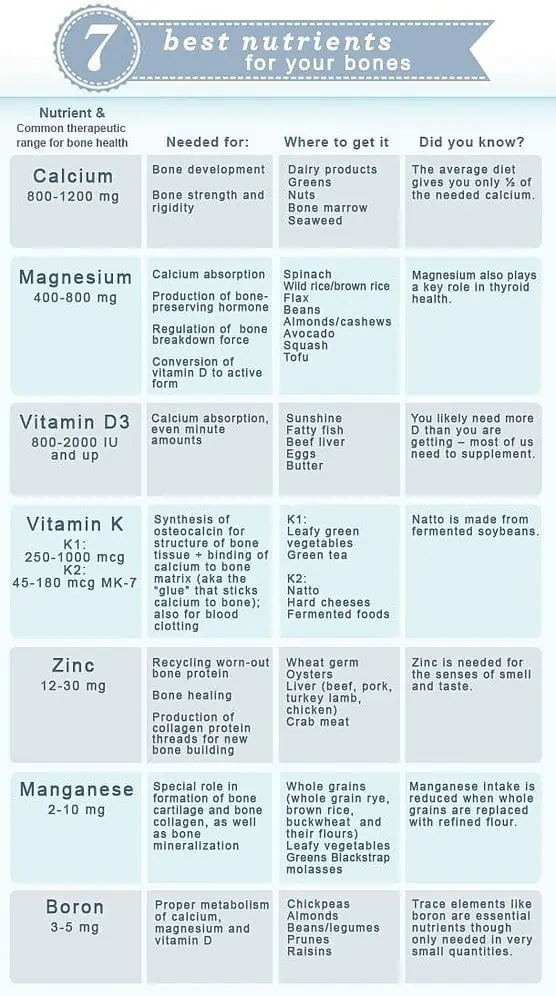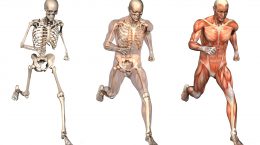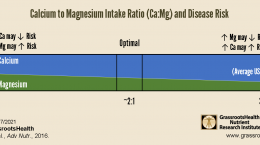Published on October 19, 2023
What is good for the bones is good for the entire body and immune system! Nutrients and tips to increase overall mental and physical health, wellness, and stength.
Key Points
- At least 20 nutrients are essential to bone health, and a minimum amount of each must be obtained on a daily basis, from our diet and/or supplements, in order to maintain healthy bones – otherwise, a single nutrient could act as a limiting factor for bone health
- Dr. Susan Brown recommends starting with the top 7 bone health nutrients; also important to supporting bone health is getting enough protein and omega-3 fatty acids
- GrassrootsHealth offers several tests that can be included in your home blood spot test kit to help you determine if you are getting enough of several key bone health nutrients — which also happen to be key to a healthy immune system
Today is World Osteoporosis Day (Oct. 20th)! Many individuals automatically associate osteoporosis and bone health with calcium and vitamin D – however, did you know there are many other important nutrients and factors at play when it comes to bone health?
If you or someone you know is wondering: How can I get stronger bones? What can I do or take to improve my bone health? What do I need to do for better bones? Our answer – check out BetterBones.com!
“The Natural Bone Health Expert”
 Dr. Susan E. Brown, PhD, is known as the natural bone health expert, and is a long-time supporter of GrassrootsHealth and the efforts of our founder, Carole Baggerly. Dr. Brown has been researching bone health for more than 20 years, and what she discovered inspired her to create “a comprehensive, whole-body approach to bone health.” Her approach includes topics such as nutrition, exercise, osteopenia, osteoporosis, bone drugs, and natural therapies geared towards improving and supporting strong, healthy bones. The information below summarizes her top nutritional (and non-nutritional) suggestions for bone health.
Dr. Susan E. Brown, PhD, is known as the natural bone health expert, and is a long-time supporter of GrassrootsHealth and the efforts of our founder, Carole Baggerly. Dr. Brown has been researching bone health for more than 20 years, and what she discovered inspired her to create “a comprehensive, whole-body approach to bone health.” Her approach includes topics such as nutrition, exercise, osteopenia, osteoporosis, bone drugs, and natural therapies geared towards improving and supporting strong, healthy bones. The information below summarizes her top nutritional (and non-nutritional) suggestions for bone health.
Dr. Brown’s Top 7 Nutrients for Bone Health
According to Dr. Brown, there are at least 20 nutrients that are essential to developing and maintaining healthy, strong bones. A minimum amount of each of these nutrients must be obtained on a daily basis, from our diet and/or supplements, in order to maintain healthy bones – otherwise, a single nutrient could act as a limiting factor for bone health, as explained in this previous post on the importance of co-nutrients and how they work together for a specific outcome.
Dr. Brown’s top 7 nutrients for bone health are outlined in the chart below.

These top 7 nutrients include:
Calcium (800-1200 mg) – for bone development, strength, and rigidity
Magnesium (400-800 mg) – for calcium absorption, vitamin D metabolism, and the regulation and preservation of bone
Vitamin D3 (check your blood level!) – necessary for calcium absorption
Vitamin K (250-1000 mcg K1, 45-180 mcg K2 as MK-7) – for bone structure and blood clotting
Zinc (12-30 mg) – building, recycling and healing of bone tissue
Manganese (2-10 mg) – has a special role in bone formation and mineralization
Boron (3-5 mg) – necessary for proper metabolism of calcium, magnesium, and vitamin D
In addition to the nutrients above, the bones also need a minimum amount of:
Protein – The Center for Better Bones suggests 50-70g of protein on average, or 1g protein per kilogram of body weight
Omega-3 fatty acids – research shows that omega-3s can help lower the risk of hip fracture. The optimum intake according to Better Bones is 2,000-3,000 mg/day of omega-3 fatty acids EPA and DHA.
How Our Overall Health Affects Our Bone Health
What is good for the bones is good for the entire body! Taking the steps recommended in this video to help maintain strong bones can also help increase overall mental and physical health, wellness, and strength.
Listen in and watch the video with Dr. Brown!
Are You Getting Enough Key Bone (and Immune) Health Nutrients?
GrassrootsHealth offers several tests that can be included in your home blood spot test kit that can help you determine if you are getting enough of several key bone health nutrients — which also happen to be key to a healthy immune system. These include tests for
- Vitamin D
- Omega-3 Index
- Magnesium PLUS Elements (includes essential elements magnesium, selenium, zinc, copper, and toxic elements cadmium, lead, and mercury)
- hsCRP as a marker of inflammation
The Immune Boost Panel Test Kit includes each of these measurements! The Immune Boost Panel Test Kit was created to help individuals measure nutrients that are important for immune health – and as mentioned above, what is good for the bones is also good for the whole body (especially the immune system).
Get the Immune Boost Panel with BCPALL for 15% OFF
Order Any Other Test with Code BCP23 for 10% OFF
Having and maintaining healthy vitamin D levels and other nutrient levels can help improve your health now and for the future. Enroll and test your levels today, learn what steps to take to improve your status of vitamin D (see below) and other nutrients and blood markers, and take action! By enrolling in the GrassrootsHealth projects, you are not only contributing valuable information to everyone, you are also gaining knowledge about how you could improve your own health through measuring and tracking your nutrient status, and educating yourself on how to improve it.







